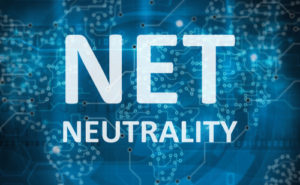
Republican members of the U.S. Energy and Commerce (E&C) Committee urged Democratic leadership to work toward a bipartisan deal that resolves debate around open internet access.
“We write to urge you to work with us on bipartisan legislation to ensure that Americans’ access to an open internet will be permanently protected,” wrote U.S. Reps. Greg Walden (R-OR), Bob Latta (R-OH), and Cathy McMorris Rodgers (R-WA) in a Feb. 21 letter sent to U.S. Rep. Frank Pallone, Jr. (D-NJ), chairman of the E&C Committee, and U.S. Rep. Michael Doyle (D-PA), chairman of the E&C Subcommittee on Communications and Technology.
Rep. Walden is a long-serving Republican leader on the E&C Committee while Rep. Latta serves on the E&C Subcommittee on Communications and Technology and Rep. McMorris Rodgers sits on its Subcommittee on Consumer Protection and Commerce.
“We all agree on the need to legislate baseline protections for net neutrality, open internet, or whatever new term may be coined for the consumer protection principles that are supported by Republicans and Democrats alike,” wrote Reps. Walden, Latta and McMorris Rodgers last week.
The members’ letter comes on the heels of a Feb. 7 hearing held by the E&C Subcommittee on Communications and Technology entitled “Preserving an Open Internet for Consumers, Small Businesses, and Free Speech,” at which Rep. McMorris Rodgers introduced the Promoting Internet Freedom and Innovation Act of 2019, H.R. 1096, while Rep. Walden introduced H.R. 1101. Rep. Latta that day also introduced a discussion draft of net neutrality legislation titled the Open Internet Act of 2019.
All three of the bills, the lawmakers said, are aimed at developing a bipartisan solution for net neutrality.
“During the hearing, we announced three bills that are realistic avenues to consensus,” they wrote. “These were not simply discussion drafts nor procedural measures to negate or reinstate past rules.”
Rep. Walden said during his opening statement at the hearing that Republicans and Democrats agree on the key parameters of a free and open internet.
“We can agree on a permanent solution to address blocking, as well as throttling, and yes even that untested practice known as paid prioritization,” he said, adding that Title II of the 1996 Telecommunications Act “is the outlier here.”
“It throws away twenty years of a bipartisan consensus that built the modern internet and replaces it with authority from the early 1900s used to govern a monopoly provider,” said Rep. Walden. “Title II sounds innocuous, but it gives big government unlimited authority to micromanage every single aspect of a provider’s business, that includes setting rates. There is nothing neutral about this kind of authority.”
In their recent letter, the lawmakers noted that the Telecommunications Act of 1996 was signed following years of “seemingly intractable differences” in Congress.
“It was through bipartisan cooperation that members of this Committee were able to come together to create landmark legislation that protected consumers and incentivized unprecedented innovation and investment,” the representatives wrote.
Reps. Walden, McMorris Rodgers and Latta added that they “stand ready” to work with the E&C committee’s Democrats “to forge a new, enduring, bipartisan legislative landmark to put an end to this debate and protect the open internet for generations to come.”



